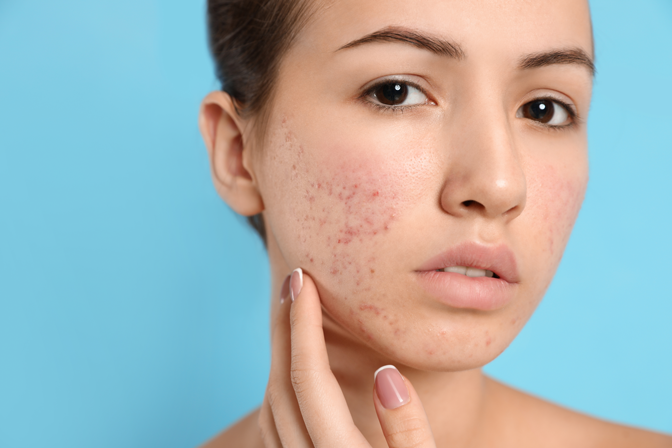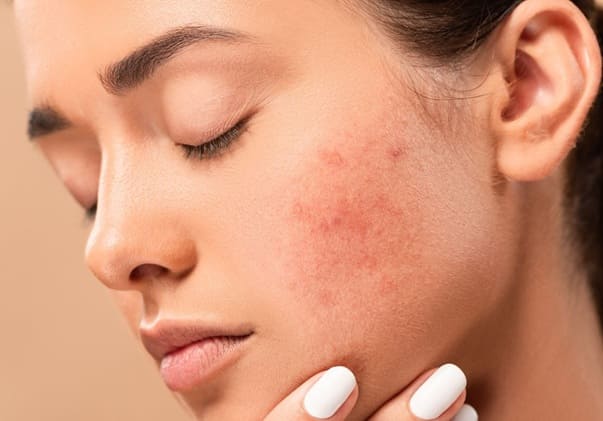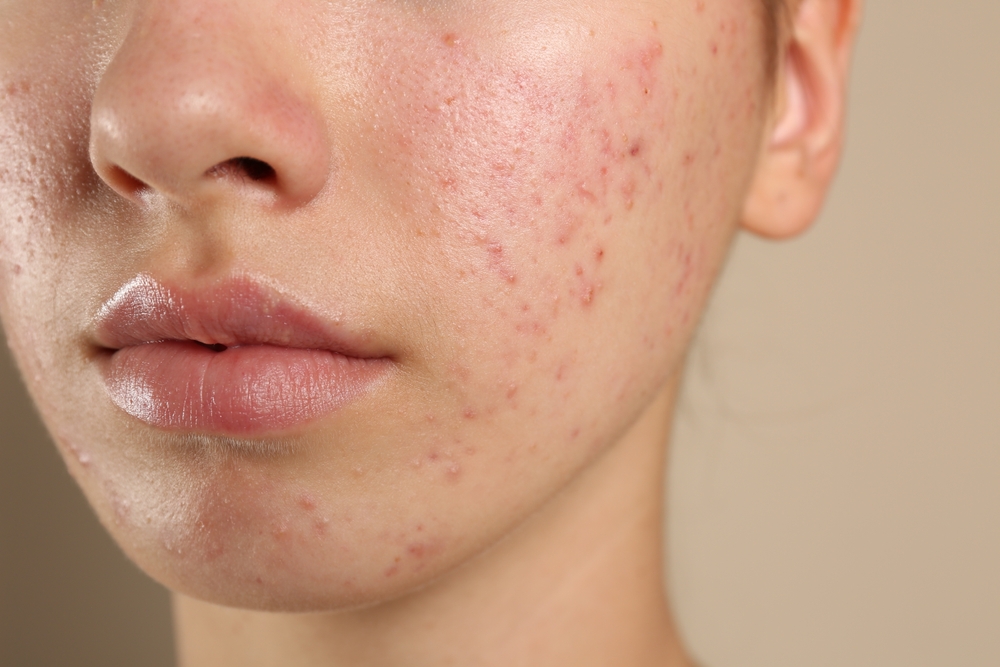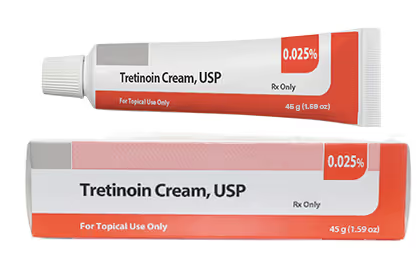Eczema, medically known as atopic dermatitis, is a chronic inflammatory skin condition that causes dry, intensely itchy, and inflamed skin. This condition can profoundly affect quality of life, leading to discomfort, sleep disruption, and self-consciousness. Fortunately, a wide range of effective treatments exists, from lifestyle adjustments and topical applications to advanced systemic medications. Understanding these therapeutic options is the first step toward achieving successful, long-term eczema management.
Understanding Eczema (Atopic Dermatitis)
Atopic dermatitis is the most common form of eczema. While it often appears in childhood, it can persist into or first emerge in adulthood. The condition develops from a complex interaction between genetic predisposition and environmental factors, which compromise the skin's barrier function and alter immune responses. A weakened skin barrier struggles to retain moisture, leading to characteristic dryness, and becomes more vulnerable to irritants and allergens that trigger inflammatory flare-ups.
The primary symptom of atopic dermatitis is severe itching (pruritus), which is often its most burdensome aspect. Visible signs include red to brownish-gray patches, small raised bumps that may leak fluid and crust over when scratched, and areas of skin that become thickened, cracked, or scaly from chronic rubbing. The location of eczema flare-ups often changes with age; it commonly affects the face, scalp, and limbs in infants, while in older children and adults, it appears more frequently in the creases of the elbows and knees, and on the hands, feet, wrists, and neck.
Pursuing effective treatment is critical not only for immediate symptom relief but also for preventing complications like secondary skin infections, which can occur when bacteria enter breaks in the skin from scratching. A multifaceted approach tailored to an individual’s condition severity, triggers, and preferences is the most successful strategy for managing this chronic condition. Understanding the nuances of your specific eczema is a key step, a process where the diagnostic expertise of an online dermatology provider is invaluable in setting a correct treatment course.
Foundational Eczema Management: Lifestyle and Self-Care
Before exploring medical interventions, it is essential to acknowledge the role that consistent lifestyle modifications and diligent self-care play in managing eczema. These foundational strategies aim to reduce exposure to known triggers, maintain skin hydration, and minimize skin irritation.
Minimize Skin Irritation
A primary goal in managing eczema is to consistently reduce skin irritation. Avoid scratching or rubbing affected skin, as this can worsen the itch-scratch cycle and lead to more inflammation and skin damage. Common irritants include harsh soaps, fragranced detergents, certain fabrics like wool, sweat, and even stress. Regularly applying a liberal amount of a suitable moisturizer, especially when the skin feels dry or itchy, can provide substantial relief and help protect the skin barrier.
Choose Skin-Friendly Clothing
The type of clothing worn can directly impact eczema-prone skin. It is advisable to wash all new clothes before wearing them to remove residual chemicals and other potential irritants from the manufacturing process. If you are concerned about laundry detergent residue, an extra rinse cycle can be beneficial. When selecting garments, opt for loose-fitting clothing made from soft, breathable fibers like cotton. Fabrics such as wool and some rough synthetics can be directly irritating and should generally be avoided or worn over a protective cotton layer.
Control Your Environment
Maintaining a stable indoor environment with consistent temperature and humidity can help prevent eczema flare-ups. Excessively dry air, common in heated spaces during winter, can dehydrate the skin. Conversely, high heat and humidity can lead to increased sweating, which can also aggravate itching. Using a humidifier during dry seasons can add moisture to the air and benefit the skin.
Practice Good Nail Care
A simple yet effective preventative measure is to keep fingernails trimmed short and filed smooth. This helps to minimize skin damage from unintentional scratching, particularly during sleep. For young children, wearing soft cotton mittens or gloves at night can also help prevent scratching.
Use Sun Protection
While some individuals find that limited exposure to natural sunlight improves their skin, it is crucial to always avoid sunburn, as this can significantly worsen the condition. Regular use of a broad-spectrum sunscreen with an SPF of 15 or higher is recommended. For those with atopic dermatitis, sunscreens formulated for sensitive skin that contain physical blockers like zinc oxide and titanium dioxide are often less irritating than chemical sunscreens.
Care for Skin After Swimming
Chlorinated pools can be drying and irritating for skin prone to eczema. It is highly recommended to take a quick, lukewarm shower immediately after swimming. Use a mild, gentle cleanser to remove any lingering chlorine, then gently pat the skin partially dry and immediately apply a generous amount of moisturizer to replenish hydration and protect the skin barrier.
Identify and Avoid Triggers
The factors or "triggers" that worsen the itch and rash of atopic dermatitis vary significantly from person to person. Common triggers include certain soaps, detergents, fragrances, allergens like dust mites and pet dander, emotional stress, and, in some individuals, certain foods. Keeping a detailed diary of symptoms and potential exposures can be a valuable tool in helping to identify personal triggers so that targeted avoidance strategies can be implemented.
The "Soak and Seal" Method
The "soak and seal" technique is a highly effective method for deeply hydrating irritated skin. This procedure involves soaking the affected skin in a lukewarm bath for 5-10 minutes. After soaking, gently pat the skin partially dry, leaving it slightly damp. Within three minutes of exiting the bath, apply a generous layer of a thick moisturizer or any prescribed topical medication. This immediate application helps to "seal" in the moisture absorbed during the soak, enhancing skin hydration and medication penetration.
Develop an Eczema Action Plan
Collaborating with a healthcare provider to develop a personalized eczema action plan is extremely beneficial for long-term management. This written plan typically outlines how to manage your skin daily, what steps to take when symptoms flare, and how to use prescribed medications effectively. At Honeydew, our online dermatology experts can help you create a comprehensive and personalized eczema action plan to proactively manage your condition.
Topical Treatments: Your First Line of Defense
Topical treatments, which are medications applied directly to the skin, are a cornerstone of eczema management. Their primary goals are to reduce localized inflammation and itching, promote healing of the skin barrier, and control flare-ups.
Topical Corticosteroids
Topical corticosteroids are among the most prescribed medications for reducing the inflammation and itch of eczema flares. They are available in a wide range of potencies, from mild over-the-counter options to very potent prescription-only formulations. Some commonly prescribed options include hydrocortisone, triamcinolone, and clobetasol propionate. The choice of steroid strength depends on the severity and location of the eczema, as well as the patient's age. It is crucial to use these medications exactly as directed by a healthcare provider to minimize the risk of side effects like skin thinning or changes in pigmentation. Our providers guide patients on the appropriate strength and duration of use to maximize benefits while minimizing risks.
Topical Calcineurin Inhibitors (TCIs)
Topical calcineurin inhibitors (TCIs) are non-steroidal prescription medications that reduce skin inflammation through a different mechanism than corticosteroids. Examples include tacrolimus ointment. A key advantage of TCIs is that they do not cause skin thinning, making them suitable for sensitive areas like the face, eyelids, and skin folds. They can be used to treat active flares and also for proactive maintenance to help prevent new ones. For sensitive areas or long-term management, Honeydew providers can help determine if TCIs are a suitable part of your personalized care plan.
Other Topical Options
A more recent advancement in topical eczema treatment is the Janus kinase (JAK) inhibitor, ruxolitinib, a cream approved for mild to moderate atopic dermatitis in individuals aged 12 and older. For severe eczema flare-ups, wet dressings or wet wrap therapy can also provide intensive treatment. This technique involves applying a topical medication, covering it with a damp bandage, and then a dry outer layer. Wet wraps help to intensely hydrate the skin, reduce inflammation, and can provide rapid relief for severe symptoms.
Systemic Treatments for Moderate to Severe Eczema
When topical treatments and lifestyle changes are not enough to control moderate to severe eczema, systemic medications, which work throughout the body, may be necessary. These are typically reserved for more extensive or treatment-resistant disease.
Oral Corticosteroids
For severe and widespread eczema flares, a provider may prescribe a short course of oral corticosteroids, such as prednisone. These medications are highly effective at quickly reducing inflammation. However, due to the risk of significant side effects with long-term use, they are generally used only for brief periods to gain control of a severe flare and are not a long-term solution for chronic eczema.
Injectable Biologics
Injectable biologic medications represent a significant advancement in the targeted treatment of moderate to severe atopic dermatitis. These lab-engineered proteins target specific parts of the immune system that drive inflammation in eczema.
- Dupilumab (Dupixent): First approved in 2017, Dupixent is a biologic for adults and children aged 6 months and older with moderate-to-severe eczema not well controlled with topical therapies. It works by blocking two key proteins, IL-4 and IL-13, which are major drivers of the inflammation underlying atopic dermatitis. Dupixent is not a steroid or a broad immunosuppressant. It is administered as a subcutaneous injection that continuously treats eczema from the inside out, even between visible flares. Dupixent is a cutting-edge biologic available through Honeydew for patients who require a more targeted therapeutic approach.
- Other Biologics: Other options include tralokinumab and lebrikizumab-lbkz, which specifically target the IL-13 cytokine, and nemolizumab, which targets the IL-31 receptor to reduce the intense itch associated with eczema.
Oral JAK Inhibitors
Oral Janus kinase (JAK) inhibitors are another newer class of systemic medications for moderate to severe eczema. These pills, including abrocitinib and upadacitinib, work by inhibiting enzymes that transmit inflammatory signals within cells. They can be highly effective and fast-acting, but they carry boxed warnings regarding potential serious side effects. The decision to use an oral JAK inhibitor requires a careful discussion with a provider to weigh the potential benefits against the risks.
Traditional Immunosuppressants
For severe, refractory eczema, older, broad-acting systemic immunosuppressants like cyclosporine or methotrexate may be considered. These drugs suppress the immune system to reduce inflammation. While effective, their use requires careful monitoring by a healthcare provider due to the potential for significant side effects, and they are typically reserved for short-term use or for patients who cannot use newer targeted therapies.
Light Therapy (Phototherapy)
Light therapy, or phototherapy, involves exposing the skin to controlled wavelengths of ultraviolet (UV) light. It can be an effective option for widespread eczema that has not improved with topical treatments. The most common type is narrowband ultraviolet B (NB-UVB) light, which is administered in a clinic 2-3 times per week. While phototherapy can reduce inflammation and itch, potential long-term side effects include premature skin aging and an increased risk of skin cancer, and the treatment requires a significant time commitment.
Natural and Alternative Remedies
Many people with eczema explore natural remedies, but it is important to approach them with caution and to discuss any new therapy with a healthcare provider, as scientific evidence for their efficacy varies widely.
Moisturizers and Plant-Based Approaches
Natural moisturizers like coconut oil and sunflower seed oil are popularly used to soothe dry skin; coconut oil may also have antibacterial properties. Aloe vera gel is known for its cooling properties, which can be beneficial for inflamed skin. However, despite their popularity, systematic reviews suggest there is insufficient evidence that borage oil and evening primrose oil are effective treatments for eczema.
Dietary Changes and Vitamins
For individuals with confirmed food sensitivities, eliminating specific items like gluten or dairy may improve eczema symptoms, but this is not a universal strategy and should be guided by a professional. Some limited evidence suggests that topical vitamin B12 may be helpful, while research on the benefits of vitamins D and E is ongoing but not yet conclusive.
Probiotics
The role of probiotics in treating eczema is an evolving area of research. Currently, evidence for their effectiveness is limited and inconsistent. However, scientists are exploring whether specific bacterial strains applied topically might beneficially modulate the skin microbiome. For example, an early-stage NIH study showed that applying a specific bacterium, Roseomonas mucosa, improved eczema symptoms in children. More research is needed to confirm the safety and efficacy of such treatments.
The Importance of a Personalized Treatment Plan
Eczema is a highly individual condition. A treatment that works for one person may not work for another. Factors like eczema severity, body location, age, and overall health all play a role in determining the most effective treatment plan. This is why a personalized approach, guided by an experienced dermatology provider, is crucial. If you are not satisfied with your current treatment, know that more personalized options are available to maximize results while minimizing side effects. This can include creating unique formulations through custom compounding of medications, a service we provide at Honeydew to meet specific patient needs.
Managing Eczema with Honeydew
At Honeydew, we understand that living with eczema is challenging, affecting not just your skin but your daily life and well-being. We know the frustration of trying various treatments without achieving the relief you need. That is why we are committed to providing expert, accessible, and highly personalized dermatological care through our online platform.
Our approach combines evidence-based medical treatments with practical advice for daily skin management. We believe in empowering you with knowledge about your condition and the full spectrum of available therapies. Whether you have mild, moderate, or severe eczema, our team of experienced dermatology providers can develop a treatment plan tailored to your unique situation. This plan may include:
- Prescription topical medications selected for appropriate strength and formulation, such as triamcinolone or non-steroidal options like tacrolimus.
- Guidance and access to advanced therapies like injectable biologics, including cutting-edge treatments such as Dupixent, for those with moderate-to-severe eczema who need more comprehensive relief.
- Recommendations for custom-compounded medications to accommodate sensitivities or create specific formulations.
- Continuous support and timely adjustments to your treatment plan, all managed conveniently online to ensure your care remains optimized.
We know that navigating insurance and accessing specialty medications can be a complex process. Honeydew is dedicated to simplifying this process, providing support to help you obtain the treatments you need. If you are struggling to control your eczema or seeking a more personalized and convenient approach to your care, we invite you to see how we can make a difference. Our goal is to help you achieve clearer, more comfortable skin and improve your quality of life. Visit the Honeydew eczema page to learn more and take the first step toward better skin health today.

.webp)





















